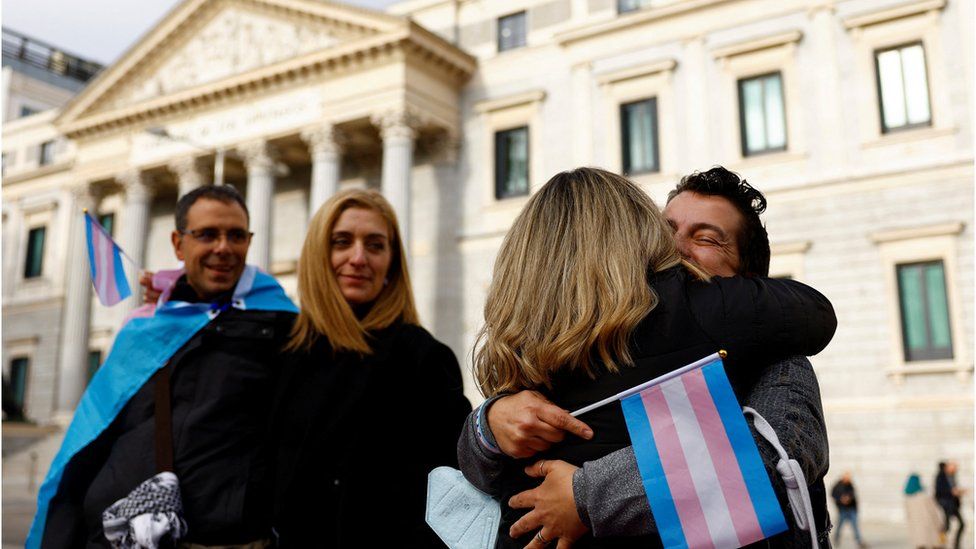Spain approves divisive transgender bill
- Published

Spain has passed a transgender rights bill allowing anyone aged 16 or over to change gender on their ID card.
It was approved by 188 votes for and 150 against, and now moves to the Senate for final approval.
The change has been pursued by the left-wing Podemos party, part of a coalition government with the Socialist party of Prime Minister Pedro Sánchez.
However, the bill has divided Spain's feminist lobby, with critics warning it could erode women's rights.
If passed, it will allow anyone from age 16 to change their gender, which they must then confirm three months later. Those aged 12 and over can apply under certain conditions.
Until now, applicants have required a medical diagnosis of gender dysphoria - feeling a mismatch between one's biological sex and their gender identity - and proof of hormonal treatment for two years, while minors needed judicial approval.
During the debate, Equality Minister Irene Montero - a Podemos party member - said the law "de-pathologises" trans lives and guarantees trans people's rights.
"Trans women are women," said Ms Montero, who has strongly advocated for gender self-identification and criticised opposition to the law as "transphobia".
However, the move has divided the country's feminist movement and exposed rifts within the governing coalition, with members of Mr Sánchez's Socialist party criticising the bill.
"When gender is asserted over biological sex, it does not seem to me to be a step forward in a progressive direction; it seems to be a step backwards," said Carmen Calvo, a former deputy prime minister to Mr Sánchez.
"The state has to provide answers for transgender people, but gender is neither voluntary nor optional," she said.
Critics say the law will be open to abuse and could threaten women's rights, allowing men who self-identify as women to compete in women's sports or request transfers to women's prisons. They have also raised concern about minors having the right to self-determine their gender.
Nine other European countries have already adopted self-declaration systems for legal gender recognition, including Ireland, Denmark, Norway, Portugal and Switzerland.
The move in Spain comes as the Scottish parliament backed a bill that would make it easier for people to change their legal gender.
Related Topics
- Published23 December 2022
- Published23 December 2022